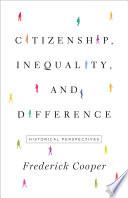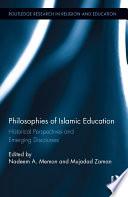Historical Perspectives and Emerging Discourses
The study of Islamic education has hitherto remained a tangential inquiry in the broader focus of Islamic Studies. In the wake of this neglect, a renaissance of sorts has occurred in recent years, reconfiguring the importance of Islam’s attitudes to knowledge, learning and education as paramount in the study and appreciation of Islamic civilization. Philosophies of Islamic Education, stands in tandem to this call and takes a pioneering step in establishing the importance of its study for the educationalist, academic and student alike. Broken into four sections, it deals with theological, pedagogic, institutional and contemporary issues reflecting the diverse and often competing notions and practices of Islamic education. As a unique international collaboration bringing into conversation theologians, historians, philosophers, teachers and sociologists of education Philosophies of Islamic Education intends to provide fresh means for conversing with contemporary debates in ethics, secularization theory, child psychology, multiculturalism, interfaith dialogue and moral education. In doing so, it hopes to offer an important and timely contribution to educational studies as well as give new insight for academia in terms of conceiving learning and education.
Philosophies of Islamic Education, stands in tandem to this call and takes a pioneering step in establishing the importance of its study for the educationalist, academic and student alike.





